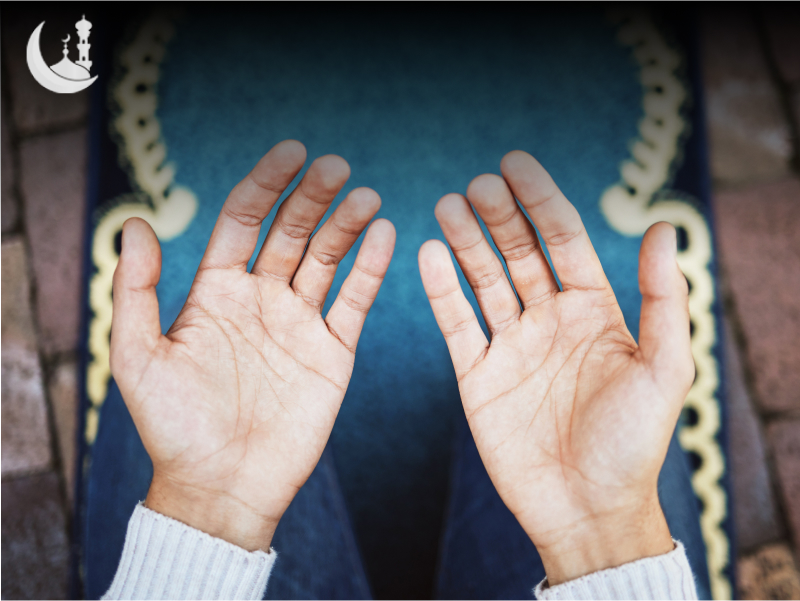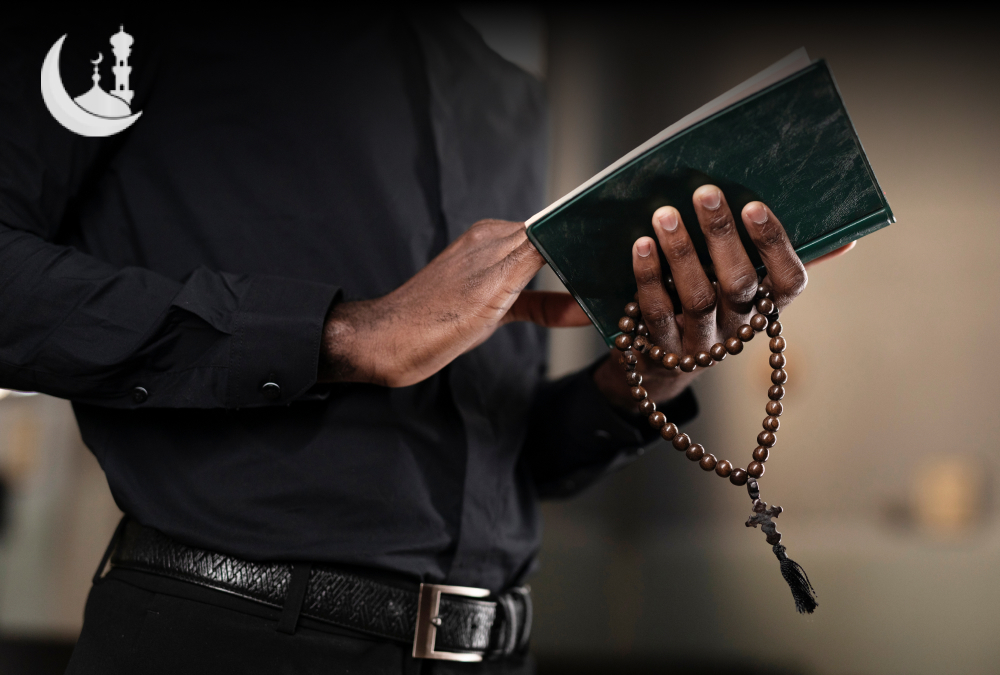Being one of the righteous servants of Allah is a matter of great distinction in Islam. One does not perform acts of worship alone, but it also pertains to the whole range of attributes that a believer has regarding him. These attributes carry at their core the love of Allah that enables believers to put up with active participation, think, and even in the association with others. In this paper, an elaborate discussion is made of the 13 qualities of Allah’s righteous servants which must be lived and practiced in the course of nurturing a healthy spiritual life. In addition, a few details about Marrkazzul Irrshaad Wa Tawjeeh may be an ideal offer of Muslim counseling.
1. Sincerity (Ikhlas)
Honesty. Whatever is being done unto Allah, be it worship or good deed, should exclusively be for the pleasure of Allah and not selfish gains or recognition. The Prophet Muhammad (peace be upon him) said that there is indeed such a thing as a good deed for one’s niyyah, or intention – a pure niyyah. Pure in this sense is in the desire to seek solely the love of Allah.
2. Gratitude (Shukr)
Good servants are those who perceive Allah as bestowing upon them many bounties. They consider every bounty received as owing to Him. Gratitude will not allow these pure believers to give up hope and become whingers during times of trying.

3. Patience (Sabr)
However hard anybody may try, there will be little imperfection, and the vast majority of teachers welcome patience as the road that leads to perfection. Good servants can endure in dignity, fasting their mouths and waiting for Him to transform them through patience.
A righteous act of a servant is Sabr. The core of which is Allah (S.W.T) has made this life full of tests and burdens and the true believers go through these tests with sabr and faith in Allah (S.W.T). The Holy Quran elaborates that when it says ‘Rahma’ or patience, it brings a person close to Allah and enables him to tolerate the issues of life so that he may rescue his faith.
Compassion and Mercy Perspective (Rahma)
Compassion is within the composition of the righteous slaves of Allah. There is a relation to humans in a free manner and that is emphatically not just to human beings only but even to other creations of Allah. He termed it as a mercy to all the world, which gives an idea of how mercy is well appreciated within the doctrine of Islam.
5. Justice (Adl)
Righteous servants do justice at every action and decision taken. They administer justice for everyone in equal measure and seek justice in their society. He commands the believers to fight all forms of injustice even if it means going against oneself or one’s family.

6. Trust in Allah (Tawakkul)
Their trust in Allah is the main feature of the godly servant The belief that all these must be tested and the outcome is on God’s side. This provides them fortitude and solace and allows them to rest with the situation not quite knowing what the outcome would be.
7. Humility (Tawadu’)
They fail to rely on others. They keep great respect for the position of a poor servant. The humility of the servant therefore beats around his head as the only principle while he ignores the menial things and becomes different from other people.
Humble honesty is thus one of the virtues of the righteous servants of Allah. They are ever sensitive to their weakness and shortcomings, so they realize that the scope of knowledge lies solely with Allah and not through an innate capability. To establish an ambiance of justice and sisterhood, humility guides them to respect others.
8. Dedication (Ibadah)
Loyal servants give themselves unconditionally to the service of Allah. It is not merely fulfilling obligations: performing the five daily prayers, and fasting during Ramadan. All actions are aimed at pleasing Allah. Eternal occupation with anything worthwhile may allow the servant to uplift his spiritual level, and this worship strengthens the tie with the Creator.
9. Truthfulness (Sidq)
A good servant is honest and full of Truth concerning Honesty in both word and action, even in going to the third asset institution trust as ordained by Allah. The value of integrity is depicted in the cohesion of members of a family institution, or even wider, a community.
10. Generosity (Karama)
Servants of Allah are indeed blessed with such liberality they would go and give away which incorporates their money, time, and other countless resources to the needy. In other words, the core aspect of this type of generosity is based on the love of Allah.
11. Forgiveness (Maghfirah)
Forgiveness is that quality that would not allow us to close the door of any other relationship we might have with this world. Good servants of God are also forgiving, and in fact, this is what makes them a representation of the love of Allah upon His creation. Grudges impair peace, but letting go of such will only strengthen community ties.

12. Love for Others (Mahabbah)
What distinguishes the righteous servants of God is their love for humankind. They extend an invitation to all, and attempt to inculcate love and amity in human hearts. Not so, however, because most of the love comes from submission unto Allah, for this is the realization that every human being has been created by one Allah.
13. Total Submission to Knowledge (Ilm)
Certainly, All the Servants of God are pious and eager for knowledge. They are firmly convinced that getting knowledge benefits them in both belief and moral standing. Such gain of knowledge enables them to serve the community better and also fits them with wise judgment solely based on clean Islam. Under any circumstance, where you feel that there is overwhelming pressure or problems rise beyond your control, family-centered counseling will always be at your rescue.
Understanding Islamic Counselling
For those who intend to reflect these qualities, Muslim counseling is the most effective way to ensure this process goes through smoothly. Organizations such as Marrkazzul Irrshaad Wa Tawjeeh give support and guidance to believers to improve their spiritual journey. These muslim counseling near me services enable an individual to be able to attain practical advice on what makes good values and how to overcome difficulties that might arise during the course.
Benefits of Consultancy
Customized Support: This can be offered through the availability of Muslim counseling services that will direct them in identifying their strengths and what they need to do to improve in the quest for righteousness.
Sense of Belonging: There is an improvement of wholesomeness and feeling of belonging with the utilization of local Muslim counseling services.
Psychological Health: Obviously, it has to be pointed out that the encounter of spiritual or emotional issues is always at the heart of health preservation. For example, it will provide one with tips on how to handle stress and anxiety.
Socio-Therapeutic Improvements: Muslim Counseling sessions are highly marked by the involvement of the client with the Islamic study material, hence improvement in the capabilities of the client in applying the doctrines in the real-life context.
| Heading | Content |
|---|
| 1. Humility (Tawadu) | Allah’s righteous servants exhibit humility in their actions and interactions with others. They avoid arrogance and pride, acknowledging that all honor and strength come from Allah. Humility allows them to be patient and forgiving in their relationships with others. |
| 2. Patience (Sabr) | Patience is a key quality of the righteous. They remain steadfast in times of hardship, trusting in Allah’s plan. Whether facing personal challenges or social injustice, they bear difficulties with composure, seeking reward from Allah for their endurance. |
| 3. Fear of Allah (Taqwa) | Righteous servants are conscious of Allah in all aspects of their lives. This fear (taqwa) drives them to avoid sinful behaviors, remain aware of their responsibilities, and strive toward a life that is pleasing to Allah in both their public and private actions. |
| 4. Kindness and Compassion | Allah’s righteous servants are known for their kindness and compassion towards others, especially the less fortunate. They actively engage in charity and social justice, helping those in need and treating everyone with respect and empathy, following the Prophet’s example. |
| 5. Regular Prayer (Salah) | The righteous maintain a strong connection with Allah through regular prayers. Their devotion to the five daily prayers strengthens their faith, provides them with spiritual nourishment, and keeps them constantly in remembrance of Allah’s mercy and guidance. |
| 6. Generosity (Sadaqah) | Generosity is a hallmark of the righteous. They freely give in charity, sharing their wealth and resources to support those in need. Their giving is not limited to material aid but also includes time, knowledge, and emotional support for their fellow believers. |
| 7. Avoidance of Idle Talk | Righteous servants refrain from engaging in gossip, slander, or meaningless talk. They use their words wisely, only speaking when it brings benefit to others. This self-discipline in speech reflects their commitment to living a life of integrity and righteousness. |
| 8. Gratitude (Shukr) | The righteous are constantly thankful to Allah for His blessings, both big and small. Gratitude shapes their worldview, helping them remain content with what they have and inspiring them to share their blessings with others as a sign of thankfulness to Allah. |
| 9. Trust in Allah (Tawakkul) | A key quality of the righteous is their unwavering trust in Allah’s plan. They understand that everything happens according to His will, and they place their full reliance on Him in both good times and difficult moments, knowing that Allah’s wisdom is always for their benefit. |
| 10.Modesty (Haya) | Modesty is a core virtue of the righteous, reflected in their appearance, behavior, and interactions. They maintain a sense of decency and modesty, always striving to align their outward conduct with the purity of their hearts and faith in Allah. |
| 11. Forgiveness | The righteous are quick to forgive those who wrong them, recognizing that forgiveness is a virtue beloved by Allah. They seek Allah’s forgiveness for their own mistakes and extend that same mercy to others, fostering harmony and peace in their communities. |
| 12. Justice (Adl) | Upholding justice is a crucial quality of Allah’s righteous servants. They strive for fairness and equity in all matters, treating everyone with impartiality and ensuring that the rights of others are protected, whether in personal dealings or societal issues. |
| 13. Devotion to Family | Righteous servants are deeply committed to their families, nurturing love, respect, and Islamic values in their homes. They take responsibility for the well-being of their families, ensuring they lead by example and maintain strong, supportive relationships with their loved ones. |
| The Role of Islamic Counseling | Seeking guidance through Marrkazzul Irrshaad Wa Tawjeeh can help individuals understand and practice these qualities. Islamic counseling offers spiritual advice and support for those striving to live a righteous life in accordance with Allah’s will and teachings. |
| Conclusion | The 13 qualities of Allah’s righteous servants form the foundation of a life dedicated to faith and spiritual growth. Practicing these virtues not only leads to personal fulfillment but also strengthens the believer’s connection with Allah and the broader Muslim community. |
Conclusion
It would reflect the deep faith and love for Allah that Allah’s sincere worshippers exhibit. By doing so, they will be able to maintain closer relations with the Creator and positively contribute to the society in which they live. This is the reason why organizations such as Marrkazzul Irrshaad Wa Tawjeeh exist; they assist those who wish to grow in their spirituality by giving them useful tools. In as much as we are running for these virtues, we get closer to the auqaid ul Jannah for which all of us strive for. That for the love of Allah, and the rewards He has for them.
Read Also: To Understand Paradise in Islam: Misconceptions and Spiritual Rewards
FAQs
Q1) Highlight the grammar characteristics of the people considered servants of Allah’s most righteous.
Righteous servants of Allah possess virtues such as sincerity, gratitude, patience, mercy, justice, reliance on Him, modesty, worship, honesty, almsgiving, forgiveness, love to people, and seeking knowledge. Such qualities are integrated within the believer, and how that believer practices, their faith, divine love, and moral values in peace, order, and daily life.
Q2) How will I benefit from seeking Muslim counseling in the course of my spirituality?
Answer: In seeking Muslim counseling, one can find focus on resolving issues and developing appropriate qualities. Counselors can assist patients in recognizing strengths and weaknesses, engaging in the community, providing mental wellness, and knowledge of Islam all of which facilitate one’s improvement.
Q3) How does the love of Allah aid in the acquisition of righteous qualities?
The love of Allah remains the greatest driving force for believers to practice good morals. When such a person develops a strong affection for the Creator, he or she will find it difficult to be sincere, compassionate, and humble in their behavior. This love propels them to advance their education, be thankful, and get along well with everyone around them, which is how they can live righteously.



